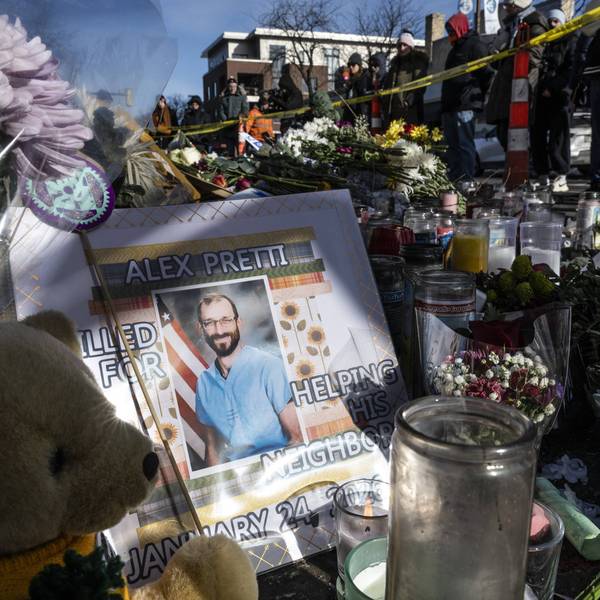Following reporting that the Trump administration is planning an attack on Medicaid by seeking key changes in how the program is financed--changes it wants to make without Congressional approval--Democratic lawmakers and healthcare advocates are warning the proposal means healthcare for millions of Americans will be threatened as states will be forced to "make draconian cuts."
The plan, Politico reported Friday citing "three administration sources," would involve states being able to opt for block grants instead of receiving open ended funding as they do now, for supposedly "more flexibility to run the low-income health program that serves nearly 75 million Americans, from poor children, to disabled people, to impoverished seniors in nursing homes."
As for that touted "flexibility," Hannah Katch, senior policy analyst at the Center on Budget and Policy Priorities, previously laid out in a blog post:
states already enjoy expansive flexibility under Medicaid, which they're using to streamline healthcare delivery and improve health. A block grant would likely sharply cut federal funding over time and shift large costs to states, eliminating states' ability to invest in innovative reforms. It would only give states the flexibility to make draconian cuts, leaving many beneficiaries uninsured or without access to needed healthcare.
Moreover, as Kelly Allen of the West Virginia Center on Budget and Policy explained in a tweet, "Entitlement programs like SNAP and Medicaid see increased need when the economy worsens or during natural disasters. But with a block grant--sorry--it's a fixed pie and when the money is gone, it's gone." Look also to what happened in 2014 with regards to prescription drug spending to see the impact of block grants, said Edwin Park of Georgetown University Health Policy Institute' Center for Children & Families:
The Kaiser Family Foundation offered this info graphic to contrast the funding as it currently is with how it would be with block grants:
Politico added:
the administration has been deliberating and refining the plan for weeks, hoping to advance an idea that Republicans since the Reagan era have unsuccessfully championed in Congress against stiff opposition from Democrats and patient advocates. During the Obamacare repeal debate in 2017, Republican proposals to cap and shrink federal Medicaid spending helped galvanize public opposition, with projections showing millions would be forced off coverage.
[...] [Centers forMedicare and Medicaid Services Administrator Seema] Verma has been trying to insert block grant language into federal guidance for months but has encountered heave scrutiny from agency lawyers, two CMS staffers said. She mentioned interest in using her agency's authority to pursue block grants during a meeting with state Medicaid directors in the fall but did not provide details, said two individuals who attended.
With the reported push, Park added, the administration "is again ignoring lessons of 2017 repeal/cap fight & 2018 midterms. Medicaid is very popular (74% favorable opinion) & block grants are definitely not (71% oppose)."
Offering an 18-point Twitter thread to expose the dangers of proposal, Rebecca Vallas, who serves as vice president for the Center for American Progress's Poverty to Prosperity Program, asserted, "Make no mistake: people will die if Medicaid block grants take effect."
She also included in the thread that among those who would be most hurt are people with disabilities; that it could take away Medicaid from between 14 and 21 million Americans; that even those not kicked off the program would still be hurt; and that the administration is setting itself up for legal action.
That last point was noted in a tweet by Rep. Frank Pallone (D-N.J.), chair of the House Energy and Commerce Committee, which has jurisdiction over Medicaid:
Another lawmaker chiming in was Senate Finance Committee member Bob Casey (D-Pa.), who offered a blunt "Hell no" to the plan.
"If the Administration tries to decimate Medicaid through executive action after its scheme was rejected by Congress and the American people, I will fight it with everything I have," he tweeted.




